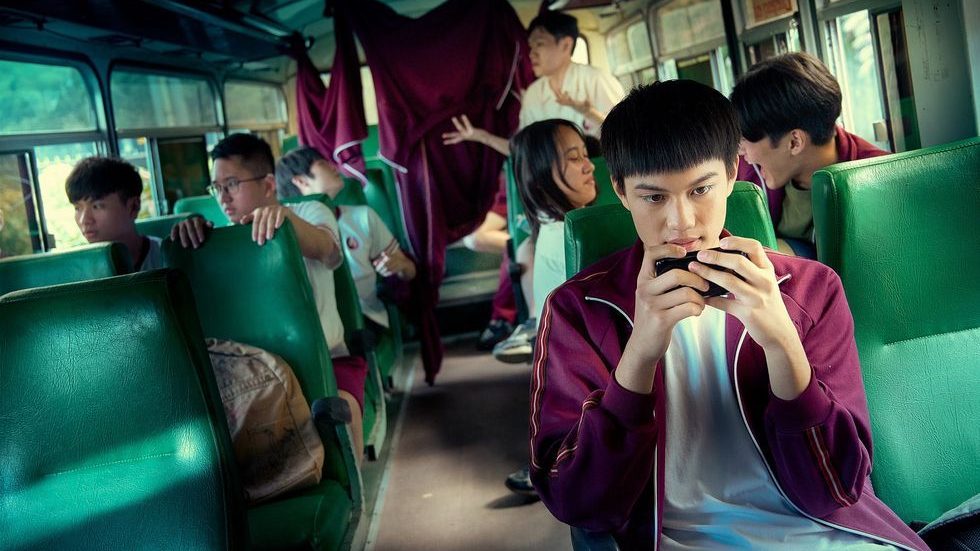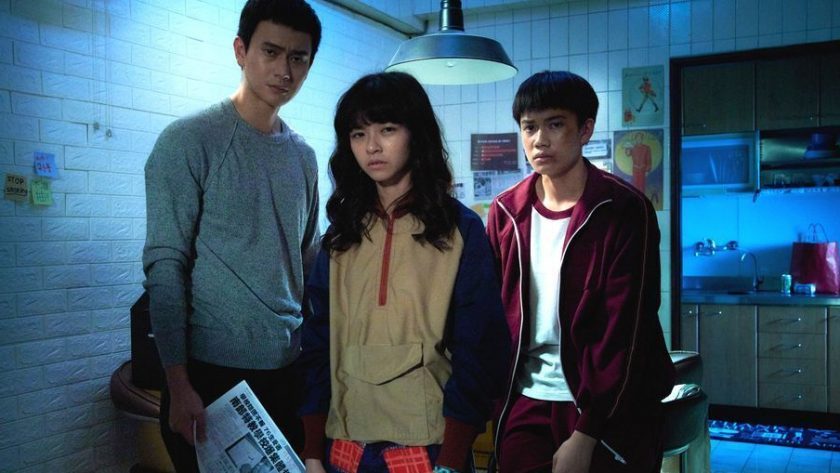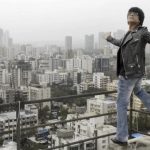LEAFF 2021 celebrates its sixth year with a programme of thirty films from celebrated and debut filmmakers. Championing East Asian cinema, LEAFF aims to bring a wide range of cinema to London and offer the opportunity to experience a new culture of cinema.
Sungleen Moon reviews the real-life inspired psychological thriller about a sexual abuse scandal at a Taiwanese school for the deaf.
For most people, vulnerability is temporary. Everyone feels at risk somewhere, yet, we all most likely have a safe space where we can withdraw and become instantly comforted. A place where you have the freedom to be yourself with a community of similar others. The idea that there is no safe space, of being in a perpetual state of unprotection and exposure, terrifies us all. Perhaps this is why The Silent Forest (無聲) is so horrifying. The film sheds light on those whom society does not accommodate because those who are left vulnerable, exposed, and pushed to the outskirts of discomfort have no choice but to stay immobile and silent when they are in danger.
The true story of Tainan School for the Hearing Impaired and Mute’s sexual assault cases in 2009-2011 inspired Ko Chen-Nien to direct this Taiwanese film, The Silent Forest. With the film winning awards and nominations in Taiwan last year, it has already raised awareness of the true story, impacting audiences with its important social commentary and unsettling examination of abuse. The real events behind The Silent Forest are sinister: a mass total of 300 deaf and mute students were found to be victims of sexual assault by teachers and fellow students. Power was abused and safe spaces were exploited, as the crimes took place in classrooms, bathrooms, and even on school buses. The school was aware of these crimes yet chose to turn a blind eye to the cries of the victims. Ko Chen-Nien passionately translates this story onto the big-screen, emotionally capturing the heartbreaking and shocking moments which would leave any audience repulsed and angry about how these crimes occurred and why it was allowed.
The Silent Forest begins with a deaf boy named Chang Cheng (Liu Tzu-Chuan) being taken into a police station after chasing a man who stole his belongings. The policemen, who do not care to listen or understand him, assume he is guilty of all things. We soon find out that the world he lives in does not cater for his disability. Chang Cheng receives an opportunity to attend a school in the countryside for deaf students, where he is allowed to meet many fellow pupils who are similar to him. Chang Cheng befriends a girl named Bei Bei (Chen Yan-fei) and soon they become close friends under the blooming, natural landscape that resides the school. At first, we have hope for Chang Cheng as he has finally found a safe community. However, things take an alarming turn. As the sky turns dark and eerie, the rural landscape becomes a place of inescapable isolation. The sounds of the natural forest shift to abnormal cries in the night as the film’s hopeful tone move into a more menacing one. Chang Cheng discovers that the school is not solace, but rather a fearful space that pushes students into a spiral of peer pressure, bullying, and sexual and physical violence.

The Silent Forest may remind audiences of another drama film that denounced the abuse of power at a school for children with hearing impairments. Hwang Dong Hyuk’s Silenced (2011) not only brings light to the systemic injustices against disabled children but also spotlights our own complicity in this society. The teachers of the school, the judicial system, the police, and even normal citizens that are apathetic towards the abuse against deaf people, all engage in acts that further the lack of safety for disabled people. The professionals in charge who are supposed to provide protection and help, or the citizens who do not think they are being actively harmful, both contribute towards the discrimination and oppression of deaf people. This idea that there is no safe or caring space to turn to for deaf people is explicitly explored in The Silent Forest. As Chang Cheng and Mei Mei attempt to escape the pressures of school by visiting the cinema, they are met with discomfort and annoyance by the hearing public. “We’re different from other people,” and “I’m more afraid of being left alone in the outside world,” Chang Cheng and Mei Mei discuss. Danger and harm are inescapable for these characters as, both in hearing and deaf spaces, there is no safety to be found.
The Silent Forest displays an unnerving account of abuse, mostly through the use of sound and the characters’ facial expressions and body movements. However, Ko Chen-Nien is also unafraid to show some horrifying scenes throughout the film. When a film delves into the explicit content of violence and assault, it can often feel like it has been included for shock-factor, a repugnant device used to cause public stir and reaction. This leaves the physicality of abuse taking centre-stage, rather than the people or the cause. The Silent Forest makes sure to attentively focus on the victims, rather than the abusers or the abuse itself. Ko Chen-Nien gives us an empathetic look into the psychological state of sexual assault victims; the range of their differing emotional states, from bravery to guilt, resilience to helplessness are depicted. A question that recurs amongst the characters is: “What will people think?” Not only do victims have to face the reality of their traumas, but they are also forced into spaces where feelings of shame and guilt are pushed onto them. Although Ko Chen-Nien looks into Taiwanese society’s tendency to dehumanise victims, the film’s demand that we create a safer and more empathetic society for victims can be said everywhere. The Silent Forest’s ability to be psychologically complex and sensitive was made possible by the performances of the young actors which were tear-jerkingly authentic. The characters’ range of emotions were expressively communicated through sign language.
Unlike Silenced, which explores the rigorous and hopeless battles for justice both in the legal system and in public activism, The Silent Forest withdraws any scenes that are consequential to the arrests. Initially, the ending assumes the far-fetched positive: the perpetrators are convicted while the victims are happily resuming their daily lives. However, confidence and reassurance are from what The Silent Forest offers the viewer. A hopeful ending would have disrupted the intensely painful and realistic narrative. Instead, Ko Chen-Nien fabricates an illusion of comfort and unexpectedly removes it, leaving you haunted with terror and goosebumps at the lack of justice and the long-lasting effects of exploitative power. Even when the abusers are caught, for victims, abuse is not dismissable, transient, or a self-healing scratch that can be fixed with a bandaid. It can be a recurring trigger for the victims and an eternally unsafe space is created if not prevented or actively fought against. The director concludes the daring film by critically bringing our attention to the cycle of abuse and its traumatic and devastating consequences. The film demands that we prevent this cycle by advocating for safer spaces for the vulnerable.
Watch the trailer for Silent Forest here:




